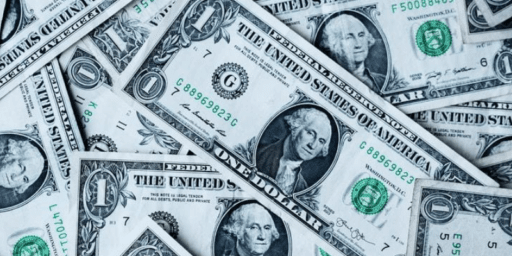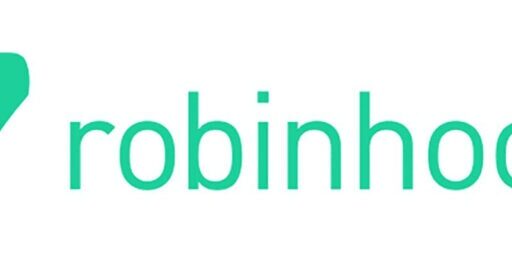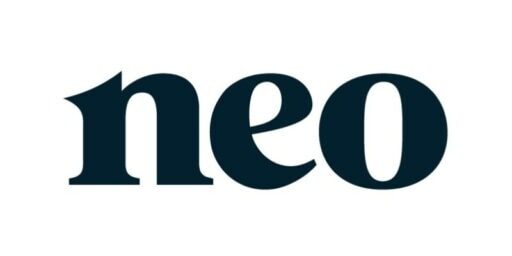Feb 2009 Net Worth Update (-2.29%): Landlord No Longer Edition
Welcome to the Million Dollar Journey February 2009 Net Worth Update – The Landlord No Longer Edition.
As some of you know, I purchased a cash flow positive rental property a few years ago. What you probably didn’t know is that the tenants were interested in purchasing the properly. I ended up selling the house for approximately the price listed in my net worth updates.
What did I do with the proceeds? Since I have until the end of 2009 to pay the capital gains tax, I simply used the proceeds to pay down my primary residence mortgage balance. When tax time in 2010 comes around, I’ll have savings set aside to make sure the tax bill is covered.
Am I in the market for another rental property? Sure, but only if the deal is right! Even though owning residential investment property can be lucrative, it isn’t as passive as I would like. Perhaps I will do a little digging into commercial real estate.
As my real estate exposure is now reduced, I will be increasing my REIT asset allocation via my TFSA most likely.
Here are the assets/liabilities results for the month of Feb 2009 (compared to Jan 2009):
Assets: $439,650.00 (-22.04%)
- Cash: $4,500 (+0.00%)
- Savings: $35,700 (11.91%)
- Registered/Retirement Investment Account: $40,000 (+0.76%)
- Pension: $22,350 (+0.00%)
- Non-Registered Investment Account: $13,100.00 (+0.77%)
- Smith Manoeuvre Investment Account: $37,000 (-9.76%)
- Investment Property: $ 124,500 (+0.00%)
- Principal Residence: $275,000 (+0.00%) (purchase price)
- Vehicles: $12,000 (2 vehicles) (-0.00%)
Liabilities: $127,900.00 (-47.77%)
- Investment Property Mortgage: $92,000 (-0.11%)
- Principal Residence Mortgage (readvanceable): $76,000 (-24.90%)
- HELOC balance: $51,900 (+0.39%)
Total Net Worth: ~$311,750.00 (-2.29%)
Started 2008 with Net Worth: $309,950.00
Year to Date Gain/Loss: +0.58%
This months reduction in net worth is due to higher than predicted fees involved with selling the rental along with weakness in my leveraged portfolio. Hopefully we can continue with the net worth increases moving forward.
Some quick notes and explanations to net worth questions I get often:
The Cash
The $4,500 cash are held in chequing accounts to meet the minimum balance so that we pay no fees (accounting for regular bill payments). Yes, we do hold no fee accounts also, but I find value in having an account with a full service bank as the relationship with a banker can prove useful.
Savings
Our savings accounts are all held with PC Financial. We hold a fair bit of cash in case “something” comes up. The “something” can be anything that requires cash such as an investment opportunity that requires quick cash or maybe an emergency car/home repair.
Real Estate
Our real estate holdings consist of a primary residence plus a rental property. The value of the principal residence remains valued at the purchase price despite significant appreciation in the real estate market that we’re in.
I've Completed My Million Dollar Journey. Let Me Guide You Through Yours!
Sign up below to get a copy of our free eBook: Can I Retire Yet?











Would you include RESP as an asset in your NETWORTH calculations?
Thank you,
Secunoid
Nobody knows where the market is going…period. You can’t base decisions too heavily on market timing. Expect and plan to be wrong.
Positive NW growth year to date in a year like this is great FT!
Wow FT.
Congrats on selling the rental (I guess). My first thought was: “Why would FT sell his cash-flow positive rental? Is he suddenly into market timing?”
FWIW, your timing is probably good :)
Interesting debate on whether it is better to pay off the mortgage now or later. Personally I have been trying to pay mine off as quickly as possible. My mortgage is a 5 year closed at 4.79% (due oct 2010), my HELOC is currently at 2.5%.
Like frugaltrader I employ a HELOC so I can use the expanded line of credit for leveraged investing in the market. Up until the last few weeks I was holding ~120k of leveraged investments, but it has been a very difficult 9 months, so I chose to move to an all cash position while I was still +10% (I would like to say I managed to stay +10% due to my investing prowess, but I only managed to hold that gain because the loonie fell from near par, to 79 cents and I was holding all US stocks)
I constantly debate with myself whether it would be wiser to pay off the bulk of the mortgage in the future. As mentioned above, future dollars should be worth less due to inflation, and interest rates are low enough that when I renew in 2010, I could have a very low rate.
On the other hand, it is obvious that with the BOC prime rate at .5%, rates have nowhere to go but up, and in the future banks might increase their quarterly profit by increasing their spread between BoC prime and Bank Prime. Several banks have already abitrarily increased LOC interest rates for this reason.
For now the deciding factor for me hasn’t been based on a business decision,but rather a personal one. It keeps me motivated and focused to set a highly aggressive target on my mortgage. Given a couple more years of solid income, I may be able to reduce my mortgage to zero by the 2010 renewal date.
And if I see investment opportunities arise I can use the HELOC to take advantage of them. It would also make me very happy to be able to reach the zero debt mark.
What is everyone elses opinion?
Kirk
Ms Save Money,
Any money FrugalTrader places against his mortgage (or HELOC) is easily retrievable. Thus if an unexpected event were to occur (unlikely, as FrugalTrader seems to plan fairly well) the additional payments sit in his mortgage like a savings account, available should he need it, and reducing his interest cost until such time as it is withdrawn.
Also, since you appear to be an American (based on the website you link), you should be aware of the taxation differences between there and Canada when you make your assessment.
In addition, the profits from selling the rental pale in comparison to FrugalTrader’s existing savings, so I think that issue is covered.
I not only would second Paul s’ advive — I have applied it myself!
DAvid
With all the infomercials floating around and making it seem so easy, it’s nice to hear your honesty regarding this passive income vehicle.
So I was reading your first comment Paul s, and I was wondering why you would recommend FT to pay down the mortgage that much? He has other expenses he has to pay for, not to mention he needs money set aside for unexpected events that might come up. Would you, yourself take those types of risks? I’m all very new to this and I am wondering if you have had any good experience with being that aggressive with your investment?
I think your timing was perfect (in regards to selling your Rental property)….I believe NFLD real estate has not gone down hill like much of the other country…but with oil heading south who knows how long real estate prices way out east will hold….So I think you were wise to sell while you were ahead….plus do you really want the head ache of being a landlord…when you can invest in REITs that pay a decent yield with zero hassle….
Anyways good luck on your journey……
Hey FT excellent site, I love it because ITS CANADIAN and has relevant Canadian content. It is an invaluable resource.
I am kind of surprised that you decided to unload your rental property. (I know you stated that you were helping out a tenant/friend perhaps a lease option would have been better). I would just be leary of the capital gains tax that you would have to pay on it. But 124k isnt that bad I guess.
I am currently in the middle of buying into a completely passive investment opportunity. Its a luxury condominium hotel. You purchase the condo/suite and participate in the pool if you want to. Or you can choose to live in your suite if you’d rather. BUT as an investment property it is very lucrative. So why would you live in it! It is run and operated by a hotel management company and I do absolutely nothing, but collect the cheque in my mail (or auto deposit).
Just to give you guys the heads-up. Keep an eye open for a club called Private Investment Club. This is how I am able to do this deal. Buy in at wholesale rather than pay retail prices.
I realize this club exists currently only in Ontario. They have 6 chapters opened up. But, with their success rate, I wouldn’t be surprised if you had a club open near you (in the next few years anyway).
http://www.privateinvestmentclub.ca
If there is a significant capital gain you might want to consider posting a liability for the future taxes. (multiply the gain by 1/2 your marginal tax rate).